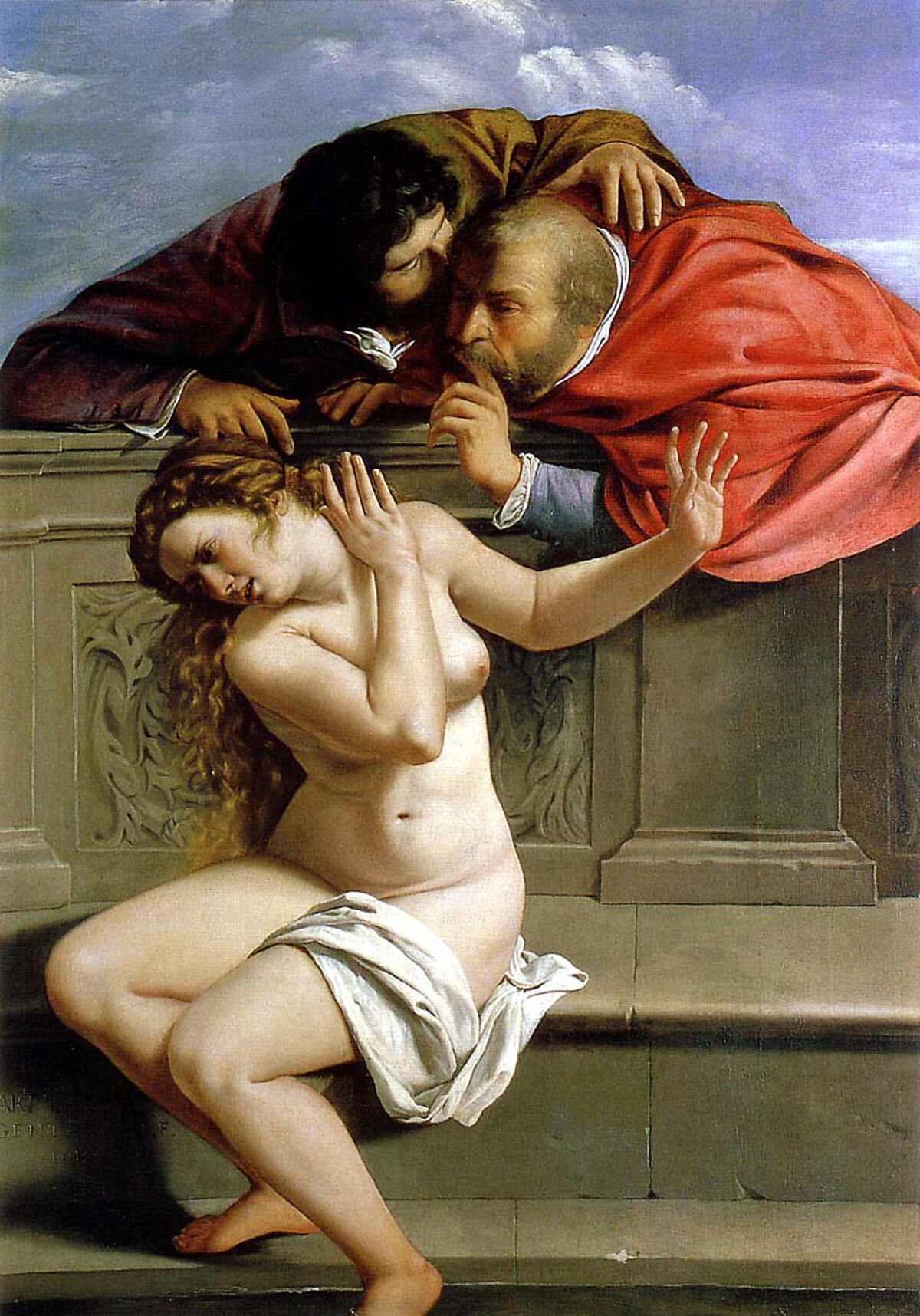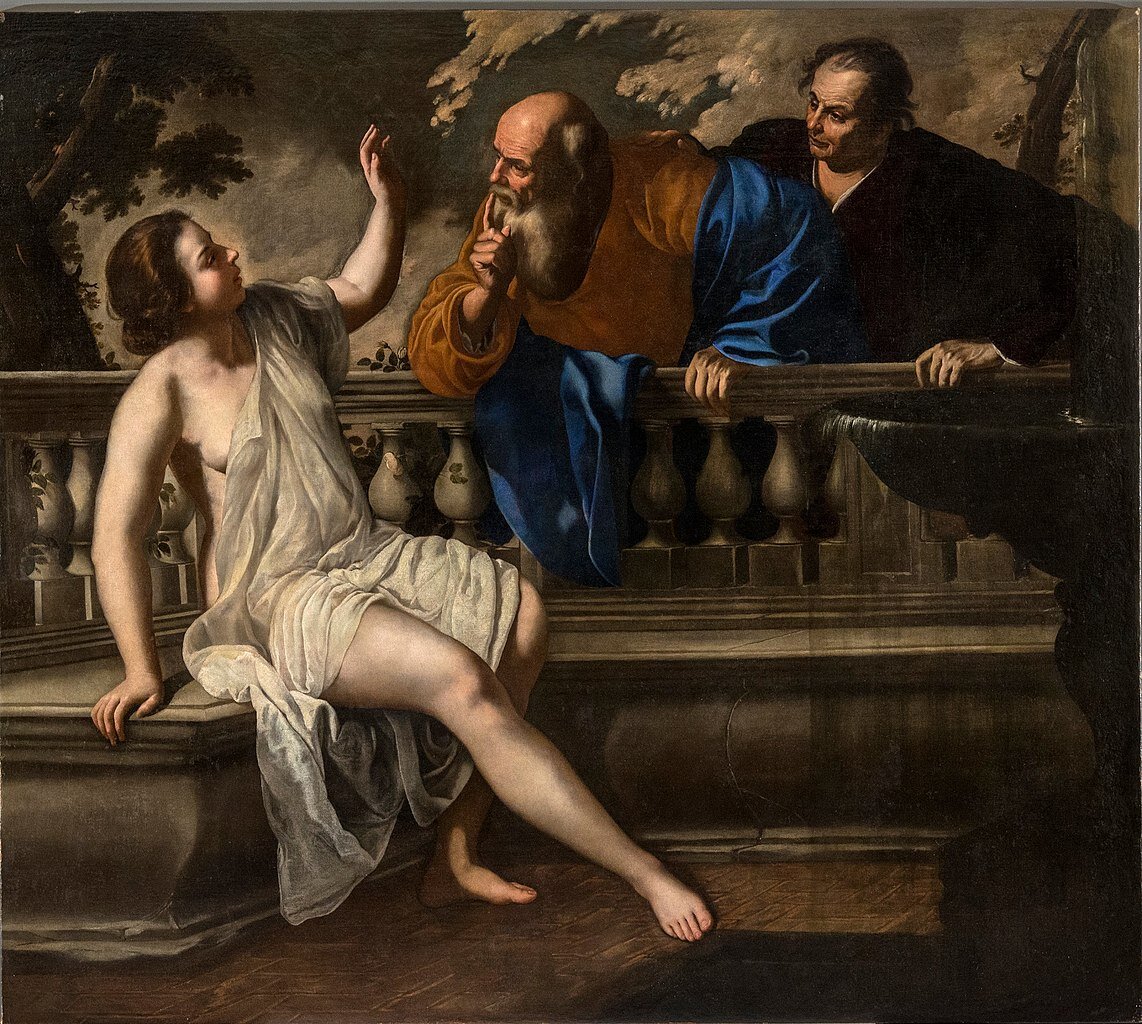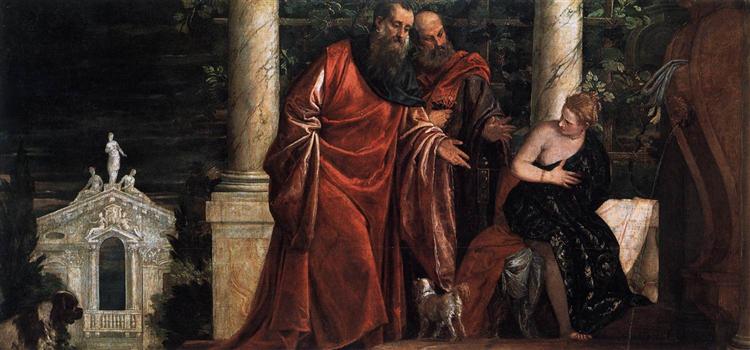susanna and the elders
paintings of Susanna and the Elders
The story
Susanna and the Elders is a Biblical story from the Book of Daniel (chapter 13). One of the additions to the Book Daniel, it is considered apocryphal by Protestants. Interestingly, it is listed in Article VI of the 39 Articles of the Church of England among the books which are read "for example of life and instruction of manners", but not for the formation of doctrine. [Wikipedia]
Susanna, a beautiful, married woman has sent her attendants away so that she may bathe alone in her garden.
As Susanna bathes two lustful elders secretly observe the lovely woman.
When she makes her way back to her house, they accost her, threatening to claim that she was meeting a young man in the garden unless she agrees to have sex with them.
She refuses to be blackmailed and consequently is arrested.
She is about to be put to death for promiscuity when suddenly a young man, Daniel, interrupts the proceedings, shouting that the elders should be questioned to prevent the death of an innocent.
The two men are separated, and cross-examined about the details of what they saw. They happen to disagree about the tree under which Susanna supposedly met her lover.
In the Greek text, the names of the trees cited by the elders form puns with the sentence given by Daniel. The first says they were under a mastic tree (ὑπο σχίνον, hypo schinon), and Daniel says that an angel stands ready to cut (σχίσει, schisei) him in two. The second says they were under an evergreen oak tree (ὑπο πρίνον, hypo prinon), and Daniel says that an angel stands ready to saw (πρίσαι, prisai) him in two. The great difference in size between a mastic and an oak makes the elders' lie plain to all the observers.
The false accusers are put to death, and virtue triumphs.
It is interesting to note how painters throughout history have fixated on depicting the moment of the Elders spying on Susanna rather than on her exoneration — thus including the viewer in the supposed thrill of voyeurism, and underlining her vulnerability under the male gaze. Given the number of paintings of this subject alone, it tends to normalize the idea of voyeurism.
How is that concept still okay today?
Susanna In Music
Susanna (HWV 66) is an oratorio by George Frideric Handel, in English.
The story is based on that of Susanna in chapter 13 of the Book of Daniel in the Bible. Handel composed the music in the summer of 1748 and premiered the work the next season at Covent Garden theatre, London, on 10 February 1749.
The thirteenth chapter of the book of Daniel, considered apocryphal in Protestant tradition, tells how, during the captivity of the Jews in Babylon, a virtuous young woman was falsely accused of sexual promiscuity by two elders of the community who lusted after her themselves. The prophet Daniel exposed the two elders as liars and vindicated Susanna.
The American opera Susannah by Carlisle Floyd, which takes place in the American South of the 20th century, is also inspired by this story, but with a less-than-happy ending and with the elders replaced by a hypocritical traveling preacher who rapes Susannah.





























